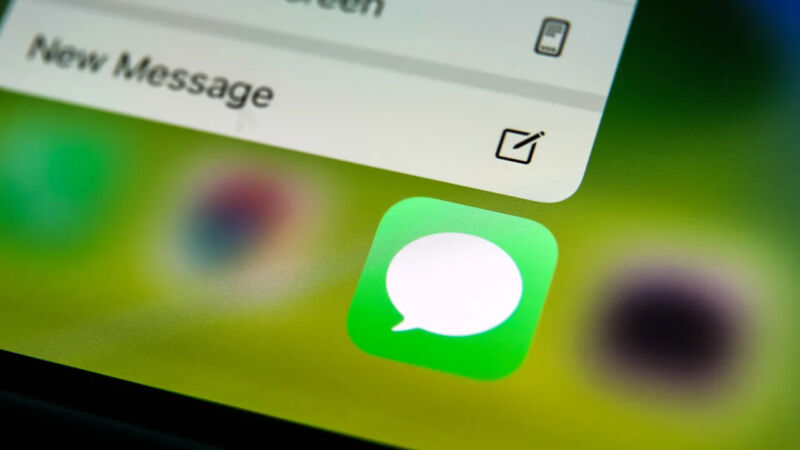
Apple is shocking the world today by adopting the RCS messaging standard for iMessage. When iMessage users are talking to people off the service, iMessage will soon be able to fall back to the RCS carrier messaging standard instead of SMS, which comes with the advantages of read receipts, higher-quality media sending, and typing indicators. Your chats with your green bubble friends will be slightly less awful.
Apple sent several media outlets a statement:
Later next year, we will be adding support for RCS Universal Profile, the standard as currently published by the GSM Association. We believe RCS Universal Profile will offer a better interoperability experience when compared to SMS or MMS. This will work alongside iMessage, which will continue to be the best and most secure messaging experience for Apple users.
iMessage is currently besieged on all sides by various parties. Google has been waging a “get the message” campaign against Apple for the past year or two, imploring the company to adopt RCS. Last year, Apple CEO Tim Cook was asked on stage if the company would make messaging with Android better, and he responded, “I don’t hear our users asking that we put a lot of energy in on that at this point” and told the audience member to “just buy your mom an iPhone” if he wanted easier communication with his mother. Regulators in the European Union have yet to decide the fate of iMessage, but if it meets the qualifications for being a big tech “Gatekeeper,” the iMessage protocol will be forced to open up in the EU. The Wall Street Journal ran an article last year subtitled “Teens Dread the Green Text Bubble,” detailing the bullying that Android users were subject to due to SMS fallback dragging down the capabilities of iMessage group chats (87 percent of US teenagers have iPhones).
On the Android side of things, companies have been desperate to work better with iMessage, with Google hacking together an emoji response solution for Google Messages and Android manufacturer Nothing planning a wild “hack into iMessage” plan by running messages through Mac computers hosted in a data center.
So credit whatever you want, but Apple has caved to the cacophony of voices asking for RCS. For all of the noise, I don’t know that RCS support will change that much. Adding status indicators and better media to SMS will certainly be welcome, but just like SMS before it, RCS will still be the worst-available way to send messages back and forth compared to all the full-featured chat apps out there. RCS is still a service that’s locked to your carrier number, so at the very least, it will be universally available now, just like SMS.
RCS is an update to SMS that was first cooked up by the GSM Association in 2008 during the heyday of pay-per-message SMS texting. Once unlimited texting took hold and texting was no longer a cash cow, carrier enthusiasm to update to RCS fell by the wayside, and the chat apps took over. There was really no enthusiasm around RCS until Google dusted off the standard in 2015 with the acquisition of Jibe, a back-end RCS provider, and then took a harder pivot to RCS in 2018 after the death of Google Allo. Google signed a lot of carriers onto the Jibe back-end, so even if you’re an iPhone user, there’s a good chance your RCS messages will be flowing through Google servers now.
Google has a few extensions on top of RCS that add important features like encryption, but that’s not part of the GSMA standard. Apple’s statement carefully announcing support for “the standard as currently published by the GSM Association” seems specifically crafted to exclude all the fancy Google extras. Android messages in iMessage will also probably still be green, so I don’t know if that will change the teen bullying concern much.
